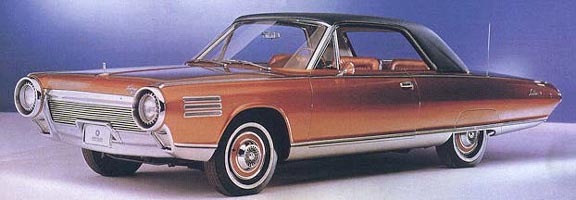Publishing Talks: David Wilk interviews Hugh McGuire
May 1, 2011 by David
Filed under Ebooks and Digital Publishing, Publishing History, PublishingTalks, Technology, The Future
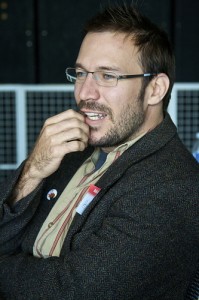 In this series of interviews, called Publishing Talks, I have been talking to book industry professionals and other smart people about the future of publishing, books, and culture. This is a period of disruption and change for all media businesses. We must wonder now, how will publishing evolve as our culture is affected by technology, climate change, population density, and the ebb and flow of civilization and economics?
In this series of interviews, called Publishing Talks, I have been talking to book industry professionals and other smart people about the future of publishing, books, and culture. This is a period of disruption and change for all media businesses. We must wonder now, how will publishing evolve as our culture is affected by technology, climate change, population density, and the ebb and flow of civilization and economics?
I hope these Publishing Talks conversations can help us understand the outlines of what is happening in the publishing industry, and how we might ourselves interact with and influence the future of publishing as it unfolds.
These interviews give people in and around the book business a chance to talk openly about ideas and concerns that are often only talked about “around the water cooler,” at industry conventions and events, and in emails between friends and they give people inside and outside the book industry a chance to hear first hand some of the most interesting and challenging thoughts, ideas and concepts being discussed by people in the book business.
Hugh McGuire is a serial digital entrepreneur. There’s a great story about him and an online interview at NextMontreal, in which the focus of the conversation is a company he started a few years ago called Book Oven, aiming to build an online book publishing platform. That particular venture did not meet expectations, but it’s a great story for anyone interested in digital publishing and start-up businesses in publishing (and resulted in a very cool tool called PressBooks, that “lets you and your team easily author and output books in multiple formats including: epub, Kindle, print-on-demand-ready PDF, HTML, and inDesign-ready XML.”)
Hugh is also the founder of the outstanding free audio book LibriVox, which currently features perhaps the largest catalog of audio books drawn from the public domain. It’s a great service and operates on open source principles. In addition to LibriVox, Hugh has also started and now runs a for-profit audio book business called Iambik, which shares many principles with LibriVox except in its profit goals, which of course drives a different business model.
What prompted me to contact Hugh now is the recent and terrific guest piece he wrote called What are Libraries For? for the outstanding blog In the Library with the Leadpipe (subtitled: The murder victim? Your library assumptions. Suspects? It could have been any of us.) This piece has so much great stuff in it (and is so well written and clear), that it’s a must-read for anyone interested in the future of publishing, books and readers (and In the Library is a great discovery too).
You may not agree with all of Hugh’s assumptions, nor his conclusions (I mostly do), but what he says will make you think hard about the digital future and what it will mean to libraries and every other institution in the book to reader supply chain. I’d be happy to hear from Writerscast listeners what you think of Hugh’s article after you read it. Comments are open.
Here’s the first graph of Hugh’s essay: “Ebooks will become the dominant form of casual reading for adults at some point in the future1. When this happens, community and public libraries will face a major existential crisis, because a fundamental (perhaps the fundamental) function of community libraries—lending print books—will no longer be a fundamental demand from the community. Libraries that do not adjust will find their services increasingly irrelevant to the populations they serve.”

Podcast: Play in new window | Download
Brando Skyhorse: The Madonnas of Echo Park
April 24, 2011 by David
Filed under Fiction, WritersCast
 978-1439170847 – Free Press – Paperback – $14.00 (ebook versions also available)
978-1439170847 – Free Press – Paperback – $14.00 (ebook versions also available)
Brando Skyhorse’s spectacular debut is a novel created from a series of interlocking stories, all of which take place in the mostly Mexican Echo Park neighborhood of East Los Angeles. Like the rest of Southern California, Echo Park is in a constant state of flux, being invented and reinvented constantly as new populations arrive and are absorbed into the diverse culture of the city.
The opening line of the book sets the stage: “We slipped into this country like thieves, onto the land that once was ours.”
Each of the stories here focuses on the story of one character, and as the stories unfold, we realize that all of the characters we are meeting are entwined with each others lives, and particularly with the central tragedy that gives the book its name, the shooting of a three year old girl during a weekly afternoon Madonna dance party hosted by a group of local moms and their young daughters.
It took me some effort to keep track of all the characters and how they are related (it probably would have helped to have had a family tree), but all of them are so brilliantly written, I ended up caring about them enough not to worry too much about the details of their relationships. Every one of the characters in this novel experiences pain and loss and redemption. Each is in one way or another transcendent. Brando’s love for all of them, and for the community they live in and which lives in them, is palpable.
It’s no accident that this book has so much to say about identity, and how individuals make their own, both because of and in opposition to their surroundings. The author, Brando Skyhorse, grew up with five different stepfathers. He grew up most of his life believing he was Native American and only learned he was Mexican as an adult. Born and raised in Echo Park, Brando graduated from Stanford University and from the MFA Writers’ Workshop program at the University of California, Irvine. For ten years, and until recently, he worked as an editor in New York publishing.
In our conversation, we covered a wide number of issues, the background and basis for this novel, how it evolved over the years he wrote it, and much about the characters and locale of the book. We talked about identity, and what it means for fiction, for this author.
I really liked this book and recommend it highly to anyone who who likes modern fiction. And I am not alone – in March, 2011, Brando received the 2011 PEN/Hemingway Award for a distinguished first book of fiction. I’m looking forward to reading many more of his books.
 Visit the author’s website for more information, appearance schedule, etc.
Visit the author’s website for more information, appearance schedule, etc.
Podcast: Play in new window | Download
Summer Brenner: My Life in Clothes
April 16, 2011 by David
Filed under Fiction, WritersCast
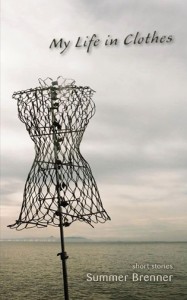 978-1597091633 – Paperback – Red Hen Press – $18.95 (ebook versions also available)
978-1597091633 – Paperback – Red Hen Press – $18.95 (ebook versions also available)
Summer Brenner is an economical and elegant writer whose fiction I have become very attached to (I read her noir novel, I-5, which I think is a terrific book, and interviewed her for Writerscast in December, 2009. Her latest book, published by the very fine Southern California based independent literary press, Red Hen, is a collection of stories called My Life in Clothes. It may as well be considered a novel, as the stories are interlocked and related enough to make one, marked by Ms. Brenner’s characteristically beautiful writing throughout.
That she was a poet first is evident in the carefulness and precision of her language; she writes a gorgeous and transparent prose that is warm and fluid and easy to inhabit. The Economist gave My Life in Clothes a terrific review, and called this book “a fierce and funny slip of a thing,” and while I love the allusion to clothes in that comment, I think this book is much more than a “slip.” Brenner loves her characters and tells their stories effortlessly. It’s the retelling and and reimagining of her own life after all. Clothes are the reference point throughout.
The story begins with Moshe Auerbach, a Lithuanian refugee who comes to America, then follows his family line to Atlanta and then the protagonist and her friends and lovers in California from the sixties onward. Along the way we meet Marguerite, the protagonist’s mother, whose fixation on clothing and appearances is a key element of the book and her cousin Peggy, whose own interest in clothes and what they mean for self image is profoundly meaningful for her in every respect.
Brenner’s writing shines. She’s funny, poignant and sharp. Here’s just one of the many great turns of phrase she manages in this book: “Peter and I used to sit for hours with rod and bait, our legs dangling over the pier, sipping beer, waiting for something to happen,” she begins one story. “Most of the time, nothing did. But that didn’t matter. We were looking for an excuse to do nothing and preferred if it had a name. Fishing is the best apology ever invented.” There are many more – I highly recommend this book to anyone who appreciates wonderful writing, and stories well told.
Brenner is a prolific and diverse writer. She has published a dozen books of poetry, fiction, and novels for children. Another recent title is Richmond Tales, Lost Secrets of the Iron Triangle, a novel for youth, which received a 2010 Richmond Historic Preservation award. Gallimard’s “la serie noire” published another of Brenner’s crime novels, Presque nulle part which PM Press will release by its English title, Nearly Nowhere, in 2012.
Her voice is wonderful to listen to as well, and I think you will enjoy our conversation about My Life in Clothes, and its wonderful stories and characters.
Podcast: Play in new window | Download
Publishing Talks: David Wilk interviews Matt Bell
April 10, 2011 by David
Filed under Ebooks and Digital Publishing, PublishingTalks, The Future
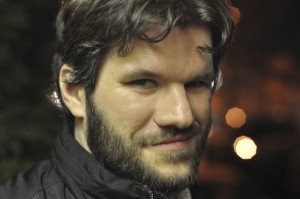 In this series of interviews, called Publishing Talks, I have been talking to book industry professionals and other smart people about the future of publishing, books, and culture. This is a period of disruption and change for all media businesses. We must wonder now, how will publishing evolve as our culture is affected by technology, climate change, population density, and the ebb and flow of civilization and economics?
In this series of interviews, called Publishing Talks, I have been talking to book industry professionals and other smart people about the future of publishing, books, and culture. This is a period of disruption and change for all media businesses. We must wonder now, how will publishing evolve as our culture is affected by technology, climate change, population density, and the ebb and flow of civilization and economics?
I hope these Publishing Talks conversations can help us understand the outlines of what is happening in the publishing industry, and how we might ourselves interact with and influence the future of publishing as it unfolds.
These interviews give people in and around the book business a chance to talk openly about ideas and concerns that are often only talked about “around the water cooler,” at industry conventions and events, and in emails between friends and they give people inside and outside the book industry a chance to hear first hand some of the most interesting and challenging thoughts, ideas and concepts being discussed by people in the book business.
Dzanc Books is an amazing collaboration of a number of relatively young writers, editors and literary activists. Founded only a few years ago (2006), it has now brought under its very broad umbrella, a large number of really interesting literary groups and activities, taking advantage of its nonprofit status to raise money for its work. Here’s a brief description of all the projects they are involved with now (taken from the Dzanc website):
• Publishes innovative and award-winning literary fiction, including short story collections and novels.
• Supports several editorially-independent imprints and literary journals, including Black Lawrence Press, OV Books, Keyhole Press, Starcherone, Monkeybicycle, and Absinthe: New European Writing
• Publishes The Collagist, a monthly online literary journal launched in August 2009
• Recognizes the best stories, poems, and non-fiction published online each year through the Best of the Web anthology series, now in its third year
• Provides low-cost writing instruction to beginning and emerging writers by connecting them with accomplished writers through the innovative Dzanc Creative Writing Sessions
• Funds the Dzanc Writers-in-Residence Program, which places published authors in public schools to teach creative writing to elementary and secondary students
• Conducts the yearly Dzanc Prize, which recognizes a single writer for both literary excellence and community service, as well as an annual short story collection competition
• Offers the Disquiet International Literary Program, a writing conference held in Lisbon, Portugal
• Creates internship opportunities for students looking to gain valuable experience in independent publishing
Dzanc has been on my radar for a while, and I subscribed to their really interesting e-book club, which is not only a cool idea for an independent press to undertake, but is also a great way for readers to easily find some new writers to read and enjoy. This particular project represents some great new thinking about ways that digital technology can create new opportunities for publishers to interact with readers. But Dzanc’s nonprofit model, and ability to foster new projects across a broad range of literary activities, and to almost amoeba-like, absorb new energy and ideas into its structure is a powerful organizational model that may offer hopeful lessons for literary writing across the country. Another corollary may be McSweeney’s, which has a similar umbrella approach to innovative and energetic literary projects.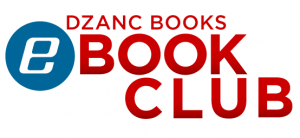
I talked to Matt Bell, who is not only Editor for Dzanc Books, The Collagist and of Dzanc’s Best of the Web anthology series, but is himself a very interesting writer, author of How They Were Found, and three chapbooks and a number of magazines and anthologies. His book reviews and critical essays have appeared in The Los Angeles Times, American Book Review, and The Quarterly Conversation. We discussed the plethora of Dzanc activities, their overall business model, and in particular their digital publishing program, all of which I think is valuable for anyone thinking about how publishing and writing are evolving into a new and vibrant future. 
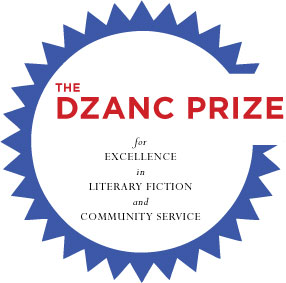
Podcast: Play in new window | Download
Bradford Morrow: The Diviner’s Tale
April 5, 2011 by David
Filed under Fiction, WritersCast
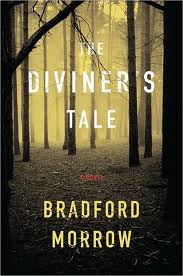 978-0547382630 – Hardcover – Houghton Mifflin Harcourt – $26.00 (ebook version also available)
978-0547382630 – Hardcover – Houghton Mifflin Harcourt – $26.00 (ebook version also available)
I have read a number of truly fine books over the past couple of years, most of which I have talked about on Writerscast. It’s important to me that I’ve only been writing and talking about books I really liked. A few of these wonderful books have just bowled me over, and Bradford Morrow’s The Diviner’s Tale is one of those. It’s a tightly woven story and powerfully interior, paradoxically, as it is set in a variety of geographic locales (all familiar to the author and therefore quite beautifully described).
Reading this book, I found myself propelled by the force of the story, and enthralled with the main character Cassandra Brooks, a single mother of two boys, daughter of a professional dowser, who is blessed and cursed by visions (Cassandra in Greek mythology had the gift of prophecy) and conflicted about her own ability to find water underground (the last name Brooks is no accident either).
The book opens with a chilling and frightening event – Cassandra is walking the woods for a client and comes across a hanged girl, who is to her, not an apparition. But when she brings the local sheriff to the scene (he is a former love interest – it’s a typical small town in upstate New York where everyone knows everyone), there is no sign of the hanged girl. But they find another girl, and that launches the story’s trajectory which ultimately forces Cassandra to confront long buried secrets in her past and some very real and dangerous possibilities for her in the present.
While the story is set in upstate New York, near the Delaware River, a significant part of the book takes place in the beautifully drawn islands of Maine near Mt. Desert – more water, more mystery, more danger for Cassandra and the reader.
Morrow is a terrific writer, and has written a number of very fine novels, but this one may well be his best book thus far. The Diviner’s Tale is a bit of a mash up, taking elements of mysteries, thrillers, and even supernatural novels, merging them into a dark melange that stands alone as an original work of modernist fiction. I liked what Joyce Carol Oates said about it – “luminous and magical…a feat of prose divination.” Well put indeed.
This book is a great pleasure to discover.
And talking to Brad was a pleasure as well. He knows himself, his work, and what it means. He talks fluently about this book, and the story of how the novel was born is definitely worth hearing. I hope you will enjoy our conversation as thoroughly as I did.
The author’s website is worth a visit too – you get a chance to read some of his stories and find out more about his many projects (I knew Brad first as the editor of the extraordinary and long lasting literary magazine Conjunctions, now up to issue #55, and which has managed to retain its sense of discovery over many years and many different literary styles and genres).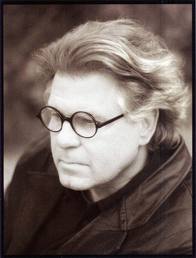
Podcast: Play in new window | Download
Publishing Talks: David Wilk interviews Charles Alexander
March 28, 2011 by David
Filed under Ebooks and Digital Publishing, Publishing History, PublishingTalks, Technology, The Future
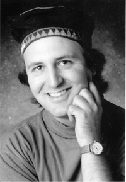 In this series of interviews, called Publishing Talks, I have been talking to book industry professionals and other smart people about the future of publishing, books, and culture. This is a period of disruption and change for all media businesses. We must wonder now, how will publishing evolve as our culture is affected by technology, climate change, population density, and the ebb and flow of civilization and economics?
In this series of interviews, called Publishing Talks, I have been talking to book industry professionals and other smart people about the future of publishing, books, and culture. This is a period of disruption and change for all media businesses. We must wonder now, how will publishing evolve as our culture is affected by technology, climate change, population density, and the ebb and flow of civilization and economics?
I hope these Publishing Talks conversations can help us understand the outlines of what is happening in the publishing industry, and how we might ourselves interact with and influence the future of publishing as it unfolds.
These interviews give people in and around the book business a chance to talk openly about ideas and concerns that are often only talked about “around the water cooler,” at industry conventions and events, and in emails between friends and they give people inside and outside the book industry a chance to hear first hand some of the most interesting and challenging thoughts, ideas and concepts being discussed by people in the book business.
Charles Alexander is the founder and prime mover behind Chax Press, a nonprofit publisher and studio. As he describes it on the website Chax “publishes writing that does not take things for granted — things like “what is a poem,””what is an author,” or “what does it mean to read?” Walt Whitman said, “Reading is a gymnast’s act.” We strive to make books that reward such exercise in stunning ways.”
Whether working with handset type, Vandercook proof press, carved wood blocks, linen threads and fine papers, or with computers, Chax Press books celebrate the changing shape of American poetry by presenting experimental works with humanist commitment. Chax also brings its work to the public in ways other than in books, sponsoring poetry readings, writers- and artists-in-residence, exhibitions, and more events that encourage a public investigation as to the nature and importance of contemporary poetry and book arts.
Chax Press was founded in 1984 in Tucson. More than 50 books have followed between then and the present, including several published during Chax’s three years (1993-96) in Minneapolis, where Alexander served as Executive Director of Minnesota Center for Book Arts.
In general, Chax Press publishes experimentalist works that share a strong humanist commitment. Chax Press chapbooks are published in small editions and mix desktop publishing technologies with hand bookbinding practices and, at times, fine art papers.
I’ve known Charles Alexander for many years and love the work he has done with Chax. I thought it would be extremely rewarding to talk to him about modern publishing and his vision of books and readers, especially now, when the current talk about digital publishing dominates our environment. Anyone who has set type, printed pages and made paper by hand for a living is certain to possess a valuable perspective on the literal relationship between word and eye that still is so important to the work of publishers in any environment. Charles and I had a great time talking about Chax and its wonderful work.
The Chax website is well worth a visit, as is Charles’ blog, and if you find yourself in Tucson, go see the Chax Press facility, which is a wonderful and central hub of the Tucson poetry and arts community.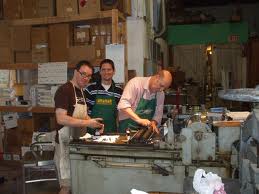

Podcast: Play in new window | Download
Steve Lehto: Chrysler’s Turbine Car: The Rise and Fall of Detroit’s Coolest Creation
March 24, 2011 by David
Filed under Non-Fiction, WritersCast
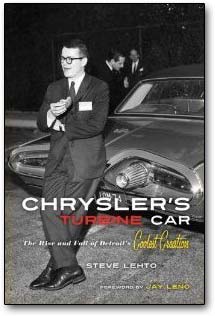 978-1569765494 – Hardcover – Chicago Review Press – $24.95 (e-book edition available)
978-1569765494 – Hardcover – Chicago Review Press – $24.95 (e-book edition available)
Steve Lehto’s portrait of the Chrysler Corporation’s amazing effort to engineer a turbine powered automobile is a terrific book, and alot of fun to read. You don’t have to love cars to enjoy this book, though I am sure it helps. But even if you don’t care about engines, and the dedicated engineers who spent years working on the turbine car program, you will learn a great deal about the industrial, social and cultural history of post World War II America.
Like so many kids who grew up in the 50s and 60s, I was enthralled with cars of all kinds, and when the Chrysler Turbine was first unveiled in 1964, along with millions of other Americans, I was fascinated and captivated by it – not only was it a beautifully designed car, futuristic and smooth, but it featured an engine like nothing else the world had ever seen up to that time. It was the Jet Age in automotive design, and here was a car with an airplane inspired engine in it.
The Chrysler Turbine represents an incredible commitment on the part of a major American automobile manufacturer to develop and popularize a truly radical alternative powerplant to the American driving public.
Chrysler’s turbine could run on almost any fuel – diesel, peanut oil, perfume, even tequila. Imagine what would have happened if the company had been able to devote hundreds of thousands more engineering and testing hours to the development of this engine over an additional 40 or 50 years. It’s entirely possible that we would not be worrying about hybrids, diesels and electric cars today. Reading Chrysler’s Turbine Car will give you a great understanding of the challenges any major new automotive development must face in order to become widely popular.
After a number of years of development and several generations of engine development, Chrysler hand built 50 examples of the the Turbine (that was its only name) and made them available to selected members of the general public for testing. Drivers could keep the cars for three months and were required to keep detailed logs of their experiences. Chrysler personnel maintained all the cars, flying all over America to repair and sometimes rescue cars that had problems, large or small. In all, the fleet registered over a million miles of testing, and performed extraordinarily well. Chrysler gained a huge amount of publicity and increased sales of their regular new cars, as well as learning a tremendous amount through the extensive practical use of their radically designed and built Turbine car by real drivers.
Unfortunately, for a variety of reasons, Chrysler ultimately abandoned the program completely, and destroyed most of the cars they had built. Only a few were saved and sent to museums to be put on display – which is where most of them still are today. Interestingly, Jay Leno was able to buy one of Chrysler’s own survivors and now drives it regularly. Author Lehto was able to drive Leno’s Turbine as part of his research for the book, and Leno contributed a foreword to this book.
Lehto interviewed every surviving member of the Chrysler team that built and maintained the cars during their short period of glory. He also spoke to many of the people who were lucky enough to be participants in the public lending program; their stories help make the book a fun and enjoyable read.
In many ways it is understandable why the Turbine car program was killed by Chrysler, even after so much effort and money had been invested in it. For a single car manufacturer to introduce a radical new powerplant completely outside the mainstream of engineering practice was ultimately economically unsustainable. But it’s impossible for us not to regret that Chrysler gave up on the multi-fuel efficient turbine in 1967, especially today, as we are facing a future when do not have a viable alternative engine to replace our dependable and thirsty reciprocating gasoline dependent engines.
This is a fun and worthwhile book to read, whether you are interested in cars, American history, culture, business or general nonfiction. Author Lehto, an adjunct professor at University of Detroit – Mercy, has written a very readable book, full of interesting characters and great stories you don’t have to be a car nut to enjoy.
Podcast: Play in new window | Download
Publishing Talks: David Wilk interviews Michael Jacobs
March 19, 2011 by David
Filed under Ebooks and Digital Publishing, Publishing History, PublishingTalks, The Future
 In this series of interviews, called Publishing Talks, I have been talking to book industry professionals and other smart people about the future of publishing, books, and culture. This is a period of disruption and change for all media businesses. We must wonder now, how will publishing evolve as our culture is affected by technology, climate change, population density, and the ebb and flow of civilization and economics?
In this series of interviews, called Publishing Talks, I have been talking to book industry professionals and other smart people about the future of publishing, books, and culture. This is a period of disruption and change for all media businesses. We must wonder now, how will publishing evolve as our culture is affected by technology, climate change, population density, and the ebb and flow of civilization and economics?
I hope these Publishing Talks conversations can help us understand the outlines of what is happening in the publishing industry, and how we might ourselves interact with and influence the future of publishing as it unfolds.
These interviews give people in and around the book business a chance to talk openly about ideas and concerns that are often only talked about “around the water cooler,” at industry conventions and events, and in emails between friends and they give people inside and outside the book industry a chance to hear first hand some of the most interesting and challenging thoughts, ideas and concepts being discussed by people in the book business.
Michael Jacobs is the Chief Executive Officer at Abrams Books. He started out in publishing as a page in the main branch of the Oakland (CA) Public Library and was the first sales rep hired by Bookpeople, the innovative and much missed employee-owned Berkeley wholesaler of independent press books (which is when I first met him – late 1970s).
From there Michael moved to Penguin USA, starting as a sales representative based in the Pacific Northwest and quickly rising to become President of the Viking Penguin division and a member of the board of directors. He then served as Executive Vice President of Simon and Schuster’s Trade division, Publisher of the Free Press, and Senior Vice President in Scholastic’s trade book group.
At Scholastic, Michael was responsible for the publishing, marketing, sales and distribution of the most successful books in publishing history—the first five Harry Potter books, which sold over 80 million copies in the US. He joined Abrams in 2004, and has directed the company successfully through virtually a complete business makeover. During his time at Abrams, the company has launched the best-selling Wimpy Kid series – which has sold 42 million copies in North America and has been published in over 36 countries, as well as a number of other highly successful books and series.
Founded by Harry N. Abrams in 1949, Abrams was the first company in the United States to specialize in the creation and distribution of art and illustrated books. It is now a subsidiary of La Martinière Groupe. Abrams is best known as a publisher of high quality illustrated books, especially art, photography, cooking , gardening, crafts, sports and children’s books. In recent years, under Michael’s direction Abrams has successfully broadened its reach, especially in pop culture and comic arts. I wanted to talk to Michael about his work at Abrams – not the least because illustrated books have faced so many different kinds of challenges in the past few years and he and his team at Abrams have been so successful throughout. But I also think his experience across a variety of trade publishing genres and company sizes (independent press, adult, childrens and illustrated books, large companies as well as smaller ones) gives him a unique perspective on the past, present, and future of publishing, in both print and digital formats that is valuable for others in the book industry to hear.
Michael’s success at Abrams may provide ideas and inspiration to many in publishing who are looking for ways to help remake their companies as the retail landscape continues to evolve and change. He is always cogent and incisive in his thoughts, and is someone whom I have always enjoyed talking with about books and ideas.
Podcast: Play in new window | Download
Harry Hamlin: Full Frontal Nudity
March 13, 2011 by David
Filed under Non-Fiction, WritersCast
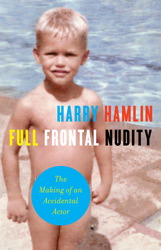 978-1439169995 – Hardcover – Scribner – $24.00 (e-book edition available)
978-1439169995 – Hardcover – Scribner – $24.00 (e-book edition available)
Harry Hamlin’s autobiographical memoir is not what you might expect if you are looking for a traditional “famous actor” tells-all but really tells-very-little story. Full Frontal Nudity is a completely honest, sometimes hilarious, sometimes sad, sometimes mind-boggling story about Hamlin’s growing up in suburban California and coming of age through two different college experiences and the beginning of his life as a professional actor.
This book is a thorough pleasure to read; Harry is a fine writer, and has a remarkable sense of the accidents and sometimes mysteries that go into making us who we are. And it’s also true throughout, whether intentional or not, by telling his own story, he becomes part of the larger social fabric of the 50’s, 60’s and early 70’s, and thus helps us understand what it was like to be alive during that now famous era of history. And for those many of us who were also there then, his story will remind us of some of the beauty and dangers we lived through.
The subtitle of this engaging memoir is important too: “The Making of an Accidental Actor.” Hamlin is clear that who he is today and how he got there represent the sum of a long series of accidents and choices with unintended consequences. As the book opens, we discover that Harry has an arrest record from 40 years ago that has suddenly prevented him from traveling to Canada, where he actually now lives part of each year.
How this happened is a great story, but what I liked most about it was the way that Harry told it on himself, unafraid to bare the truth about his life. I know that really good actors must learn how to do this, but they’re usually acting someone else’s drama, and thus are always protected on some level. There’s no hiding here, and it’s a refreshing turn. Hamlin is an actor, and a good one
Hamlin grew up in California, in a not quite normal household, and after high school headed for Berkeley at what some would say was just the right time – 1969. On the way to college, he managed an accidental detour that got him, shall we say, distracted. Intending to sign up for an architecture major, he found that there were no courses available, and the only ones available were drama, thus he embarked on what would eventually become his career. His time at Berkeley was suitably exotic, and included the drug possession arrest that later caused him so much trouble with the Canadian immigration folks. His time at Berkeley came to an untimely and early end because of a fire at the fraternity whose president he had become, and almost by magic, and again accidentally, he headed for Yale, where he flourished. Then another more or less accidental turn – he gives up a safe job as a PBS production assistant and takes an offer from the American Conservatory Theater, where a role in the play Equus ultimately led him to an outstanding film and TV career (notably LA Law, many others).
Overall Full Frontal Nudity is a terrific and wonderfully enjoyable book, and unsurprisingly, we had a thoroughly interesting and revealing conversation about the book and many of the stories he wrote about.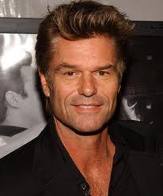
Podcast: Play in new window | Download
Publishing Talks: David Wilk interviews Phil Ollila
March 9, 2011 by David
Filed under Ebooks and Digital Publishing, Publishing History, PublishingTalks, Technology, The Future
 In this series of interviews, called Publishing Talks, I have been talking to book industry professionals and other smart people about the future of publishing, books, and culture. This is a period of disruption and change for all media businesses. We must wonder now, how will publishing evolve as our culture is affected by technology, climate change, population density, and the ebb and flow of civilization and economics?
In this series of interviews, called Publishing Talks, I have been talking to book industry professionals and other smart people about the future of publishing, books, and culture. This is a period of disruption and change for all media businesses. We must wonder now, how will publishing evolve as our culture is affected by technology, climate change, population density, and the ebb and flow of civilization and economics?
I hope these Publishing Talks conversations can help us understand the outlines of what is happening in the publishing industry, and how we might ourselves interact with and influence the future of publishing as it unfolds.
These interviews give people in and around the book business a chance to talk openly about ideas and concerns that are often only talked about “around the water cooler,” at industry conventions and events, and in emails between friends and they give people inside and outside the book industry a chance to hear first hand some of the most interesting and challenging thoughts, ideas and concepts being discussed by people in the book business.
Philip Ollila (widely known as Phil in the book industry) is the Chief Content Officer of Ingram Content Group Inc., one of the largest distributors of book content and providers of digital printing in the North American book industry. Phil is responsible for Ingram Content Group’s publisher facing business, and has been instrumental in leading the transformation of Ingram from a traditional wholesale service provider, into what is now a fully integrated solutions company for clients. Ingram combines wholesale distribution, print-on-demand, digital distribution, inventory management and comprehensive worldwide services for both physical and digital content.
Phil leads a number of Ingram business units including wholesale merchandising, Lightning Source, Ingram Publisher Services and digital distribution through CoreSource® and also heads up Ingram Content Group marketing. Before joining Ingram, where he has held several leadership positions, he was Vice President of Marketing and Merchandising for Borders.
Anyone in the book business, and many people outside it know about Ingram. It is one of the two large book wholesalers transitioning from a key role in the physical supply chain between publishers and retailers. Perhaps earlier than any other large company in the industry, Ingram had the foresight to invest in a range of services that would enhance their offerings to both their suppliers (mainly publishers) and their customers (bookstores, libraries and many other retailers). In many ways, it is only the two large former traditional wholesalers, Ingram and its competitor Baker & Taylor that have the unique perspective and ability to act as really powerful and influential transformative agencies as the book business evolves into a combination of print and digital products.
Phil Ollila is therefore now in a key role at a tremendously interesting and fast moving business that possesses a great deal of information valuable to publishers and to anyone interested in how publishing, books and readers will interact in the future, both near term and much, much farther into the future.
Podcast: Play in new window | Download

